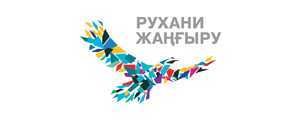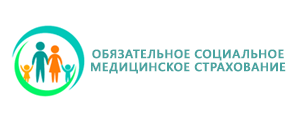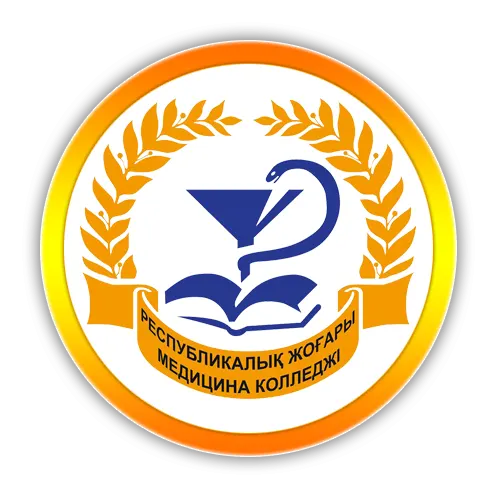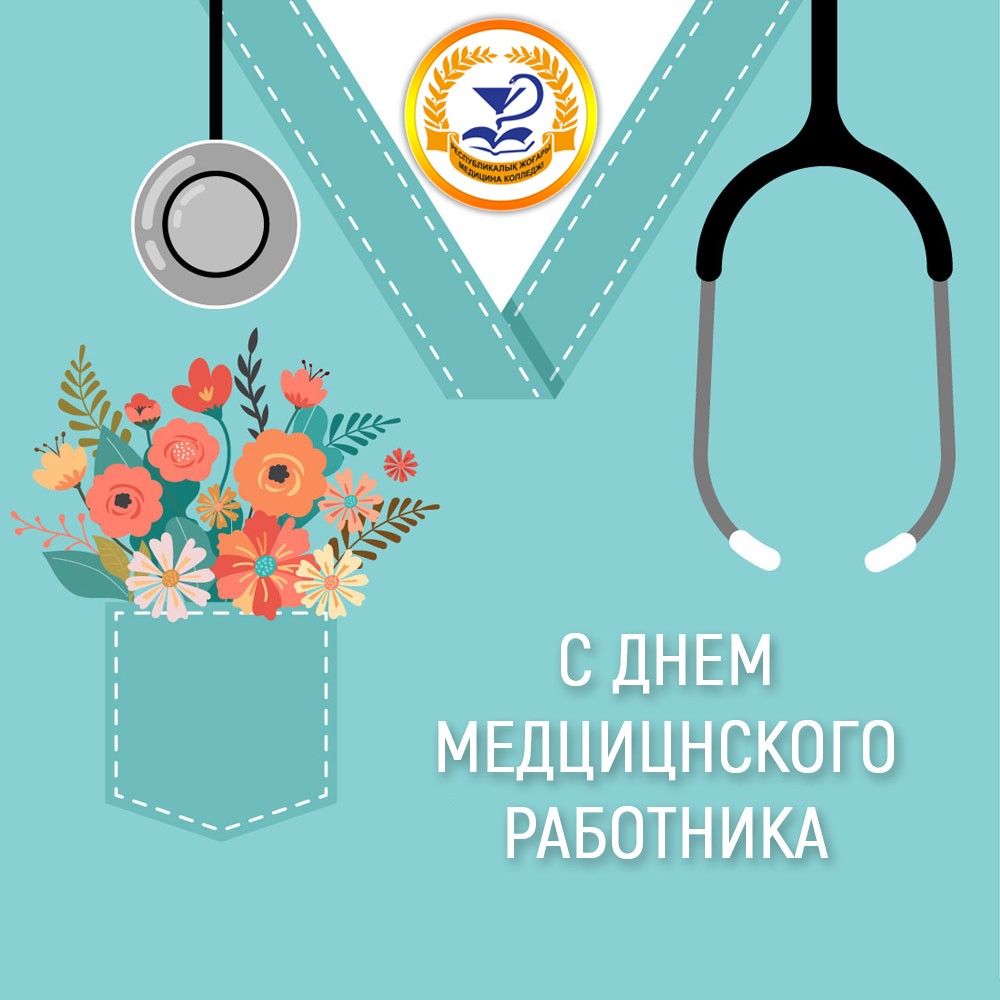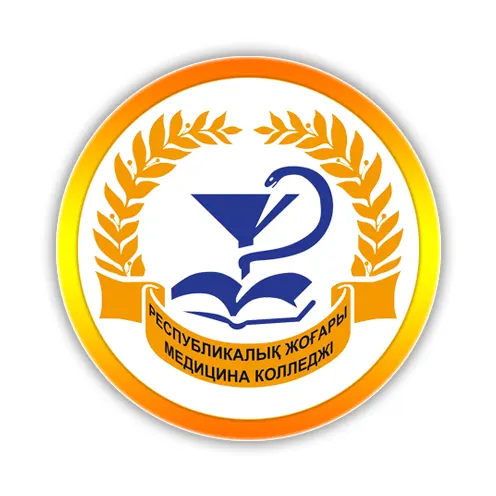Republican Medical College – one of the main medical colleges of the republic, which trains thousands of students in 8 specialties of secondary medical education, more than 2 thousand annually undergo advanced training and retraining courses in nursing. They are taught by experienced teachers and mid-level specialists, doctors and candidates of science with more than twenty years of experience. The teaching staff is faced with the problem of a qualitative approach to education, based on internal changes in the market, the economic downturn and other factors that contribute to the transformation of the educational process and innovation and improve the quality of training of nurses. . One of the ways to develop our goals is to introduce innovative technologies in the educational process. In this way, the center of information technologies and the center of quality control of educational services in professional practice is created, the modern automated information system is successfully introduced. The system unites and connects all the structural groups of the college, provides a complete exchange of information, improves the educational process, provides links between other educational institutions, human resources and educational resources, offers popular methods of quality control. services offered, skills of students, listeners and teachers. The service quality monitoring system provides all necessary measures for preventive maintenance. We have developed a methodology for assessing students, which greatly simplifies the conduct of examinations and the collection of statistics.
REPUBLICAN HIGHER MEDICAL COLLEGE
COLLEGE SPECIALTIES
Specialization: “Dentistry”
Qualification: “Dentist”
Duration of training:
— on the basis of 9 classes — 3 g 10 months
— based on 11 cl — 2 g 10 months
Dentistry is one of the most popular professions in the modern world. This is due to the fact that currently one of the most common human diseases on the planet is dental caries and periodontal disease, which often leads to premature loss of teeth before old age.
Today, 95-96% of the adult population of the world use dental services, and the need for prosthetics reaches 60-100%.
A dentist is a doctor who specializes in the treatment of diseases and injuries of teeth, jaws and other organs of the oral cavity and maxillofacial area. The profession is suitable for those who are interested in chemistry and biology.
TO WHOM IN THIS SPECIALTY
Sabyrlylykpen people who have chosen the profession of a dentist, seriously, persistently, if patiently waiting, accuracy, baykagyshtyken should differ. A good dentist treats each client with great attention and kindness. A professional doctor should be restrained, tactful and honest with everyone who comes to his aid. This profession requires excellent eyesight and well-developed hand motor skills. Dentists must constantly improve and expand their qualifications and be ready for this.
Necessity
The dentist’s profession is the most popular and highly paid. Dentists of all directions can work both in public and private dental clinics, dental offices of sanatoriums, military hospitals, etc.
THE FUTURE OF THE PROFESSION
The dental profession is in demand and prestigious. The income is quite high, so the opportunity to get such money is a good prospect. In the future, you will be able to develop, graduate from university, get the position of chief physician, become the owner of a private clinic or a private school of dentistry.
Specialization: “Orthopedic dentistry”
Qualification: “Dental technician”
Duration of training:
— on the basis of 9 kl — 2 g 10 months
— based on 11 cl — 1 g 10 months
WHAT DO THEY TEACH AT THE FACULTY OF ORTHOPEDIC DENTISTRY?
Perfect laughter is one of the main keys to success that everyone can afford today. And qualified specialists in this field are constantly in demand in the market. At the Kazakh-Russian Higher Medical College specializing in orthopedic dentistry, you will be taught how to make dentures from various materials: toothpicks, bridges, removable dentures, implants, as well as how to fix them. A college graduate-a dental technician-has excellent knowledge of the design of dental and maxillofacial apparatus, knows and successfully applies modern technologies for the manufacture of dentures, knows how to use Casting and burning equipment of prosthetic materials, and also has excellent knowledge of the technique of manufacturing dentures and various types of dentures.
HOW MANY YEARS HAS HE BEEN STUDYING FOR A SPECIALTY?
Upon admission to the Faculty of Dentistry after the 9th grade, college education is extended for 2 years and 10 months. Upon admission after the 11th grade, the period of study is 1 year 10 months. Depending on the type of training, the cost of training, which is paid by the student during the year in the specialty, also differs.
WHO CAN I WORK WITH AFTER GRADUATION?
After graduating from college in orthopedic dentistry, you can work as a dental technician in dental clinics. Also, the mastered education will be an excellent base for continuing special education at the university for higher education.
Specialization: “Medical business”
Qualification: “Paramedic”
Duration of training:
— on the basis of 9kl — 3 g 10 months
— based on 11 cl — 2 g 10 months
Paramedics are medical workers who perform universal medical services among doctors, nurses and nurses.
The profession of a paramedic is among the most sought-after medical specialists.
The word “Feldscher” is borrowed from the German language. In Medieval Europe, a paramedic treated soldiers in the open air who were injured as a result of shelling.
THE FOLLOWING DUTIES ARE ASSIGNED TO PARAMEDICS:
conducting the primary diagnosis of the patient, the victim;
preliminary clinical diagnosis and hospitalization in a specialized clinic;
assistance in emergency cases:
Emergency situations in case of an accident, accident, natural disaster;
work with an assistant, work as an assistant to a surgical surgeon addition of interventions;
provision of sanitary and hygienic regime; treatment and sterilization of medical equipment;
self-administration and administration of medications to emergency patients.
The functions of the paramedic include the following medical manipulations: cardiopulmonary resuscitation; trachea intubation, defibrillation; conicoomy, pleurocentesis, cystocenosis; dressing of surgical wounds; assistance in childbirth; autopsy of electrocardiography, etc. The paramedic is obliged to organize treatment at home, be responsible for timely vaccination of the population, carry out antiepidemic measures of medicines, proper storage, use, transportation, accounting and documentation.
ADVANTAGES OF THE PARAMEDIC PROFESSION:
there are always not enough specialists in this direction in the labor market;
having a lot of experience and improving knowledge, he becomes a highly qualified doctor;
the opportunity to officially work and work in private organizations (beauty salons, rehabilitation centers, sports complexes, swimming pools, etc.);
work in paramedic and obstetric centers, ambulances, hospitals located in villages, small settlements of regional districts.
Specialization: “Midwifery”
Qualification: “Obstetrician”
Duration of training:
— on the basis of 11 classes — 2 g 10 months
An obstetrician-gynecologist treats not only gynecological patients, but also pregnant women – from diagnosis to postpartum treatment. He is a doctor with a higher professional medical education.
Short description
Gynecology and obstetrics are ancient and closely related sciences. Today, there are obstetricians in the labor market, midwives who have secondary education, can perform simple procedures, perform simple childbirth and provide assistance. Obstetricians and gynecologists are high-level specialists who have completed 8 years of training at a medical university and gained experience throughout their lives.
Obstetricians and gynecologists get access to gynecological surgical interventions, take all types of childbirth, cooperate with paramedics, anesthesiologists, geneticists and other doctors. They operate with the following types of diseases, as well as natural conditions:
gynecological diseases;
pregnancy;
pathologies developing during pregnancy;
ectopic, frozen, early pregnancy;
oligohydramniosis and polyhydramniosis;
postpartum injuries-ruptures, hematomas and others;
bacterial, fungal gynecological infections;
preparation for pregnancy, Treatment of diseases leading to infertility: inflammation, erosion, fibroids, tube blockage, etc.
This doctor, determining pregnancy, registers the patient, then monitors his condition, the development of the fetus before delivery. Obstetricians and gynecologists also deliver patients to the maternity hospital and provide medical care before they are discharged from the institution.
Features of the profession
Obstetricians and gynecologists work in various types of medical institutions, which are in high demand both in megacities and in cities. The profession is very important and difficult, since these doctors are responsible for the lives of women and children, they often have to make decisions that are not always quick and easy. Their responsibilities include:
admission, examination, treatment of gynecological patients;
determination of pregnancy, subsequent registration;
systematic obtaining of information about the condition of a pregnant woman and fetus: weighing, measuring pressure, studying the results of laboratory tests, fetal posture, his heartbeat and much more;
prevention and detection of pathologies, their effective treatment or search for ways to reduce risks;
cooperation with therapists, endocrinologists and other doctors, assistance in drawing up a treatment plan for a pregnant woman;
working with the pregnancy management schedule, its correction;
work in maternity hospitals, where a specialist is engaged in obstetric care, treatment of postpartum injuries, leads patients to discharge;
managing complex deliveries using various procedures (extrusion, caesarean section, vacuum, etc.);
providing emergency assistance in an emergency situation, determining the severity of the situation;
infertility treatment;
professional prenatal diagnostics;
coordination of actions of medical personnel, preparation of a pregnant woman for emergency surgery.
These specialists constantly work with patients, consult on family planning, select contraceptives, talk about the peculiarities of lactation, hygiene and recovery. These are stress-resistant, collected and meticulous doctors who do not make mistakes.
Specialization: “Pharmacy”
Qualification: “Pharmacist”
Duration of training:
— on the basis of 11 classes — 2 g 10 months
According to analysts studying the needs of specialists in a particular industry for the economy of Kazakhstan, the qualification “Pharmacist” is among the ten most popular among other medical specialties. At the same time, secondary vocational education is sufficient to obtain a specialty.
WHO IS THE PHARMACIST?
A pharmacist is a specialist in the manufacture of dosage forms and their direction to the population and medical institutions, as well as the release of finished dosage forms and medical products, taking into account the peculiarities of the technological process.
The duties of a pharmacist include the organization of drug supply to the population, determining the demand for medicines and medical devices, determining the need for certain medicines and resupplying medicines. The pharmacist should know the drugs by their composition, the technology of their manufacture and production, concomitant and side effects in order to prevent diseases during the treatment of the patient. He should also know herbal preparations and medicinal herbs, their active ingredients and principles of application.
A pharmacist should know the basics of pharmaceutical business. Principles of organization of pharmaceutical activity and fundamentals of economics. Registration of documents on pharmaceutical activities.
The pharmacist works in pharmacies, wholesale companies producing medicines, in factories and factories engaged in the sale of medicines.
Necessity
A pharmacist of a very popular specialty. The pharmacy business is very popular and effective. In this regard, new pharmacies are constantly being opened. Pharmacology is at the stage of development, and pharmacists are always needed. Another thing is working in research laboratories. The career there is slow and new personnel are being built-a rare phenomenon. You may have to wait a long time for a suitable vacancy to work in the laboratory.
IS IT EASY TO GET A JOB
Getting a job is very simple. If you do not seek to work only in a research laboratory, you are unlikely to face unemployment. Vacancies of pharmacies and distribution companies are at your service. They are developing, expanding and creating constant competition.
HOW TO BUILD A CAREER AS USUAL
Once you get a job in a pharmacy or laboratory, you can eventually apply for the position of head. In distribution companies, the prospect of growth opens up to a manager who manages a warehouse of medicines.
THE FUTURE OF THE PROFESSION
The profession is developing steadily. You can climb the career ladder to the position of head. The most enterprising people can easily open their own business in the field of pharmacology.
Specialization: “Nursing”
Qualification: “General Practice nurse”
Duration of training:
— on the basis of 9 classes — 3 g 10 months
— based on 11 cl — 2 g 10 months
Specialization: “Nursing”
Qualification: “Applied Bachelor of Nursing”
Duration of training:
— on the basis of 11 classes — 3 g 6 months
— based on TiPPO 1 g 6 months
“The special function of a nurse is to help a person, a sick or healthy person to carry out actions related to his health, recovery or quiet death, which he accepts, has the necessary strength, knowledge and will. This is done so that he can restore his independence faster.” American nurse V. Henderson, who gave this definition of nursing, which received international recognition in 1961.
From this definition it follows that Nursing is individual and joint care for people of any age, group and community, sick or healthy and in any situations. It includes the promotion and support of a healthy lifestyle, disease prevention and care for the sick and disabled.
But the development of nursing does not stand still. Today, a new model of training nurses is being introduced in Kazakhstan, which will expand their powers. For example, a nurse independently manages patients and makes decisions that doctors previously made when providing care for such common diseases as blood pressure, hypertension and others.
TO WHOM IN THIS SPECIALTY
This profession is not suitable for everyone. Successful work in the specialty requires: the ability to find a common language with the patient and his relatives, quick response to the doctor’s orders – instant orientation to timely assistance in case of an emergency, politeness, sociability, a strong nervous system, responsibility and dedication. A good nurse is also a psychologist: not only to help a sick person (with their knowledge and skills), but also to say warm words, understanding his mood. after all, the successful treatment of the patient. 50% are related to mood.
Necessity
Nurses, like doctors, will always be needed. Therefore, from the point of view of demand in the near future, there are no problems in the profession.
HOW TO BUILD A CAREER AS USUAL
After leaving Medical College, many people wonder if it is possible for a nurse to make a career. Currently, there are advanced training courses. With the additional education you have received, you can get an administrative position as a senior nurse (department or even hospital), as well as teach “Nursing” in college. But the profession of a nurse does not imply career growth. There is also an opportunity to continue education and learn to be a doctor, and then build a career from a high starting position. In this case, work experience will help you master special disciplines faster. Those who are not satisfied with the salary are recommended to gain experience, improve their skills, get a new category every five years or get a job in a private clinic.
Specialization: “Laboratory diagnostics”
Qualification: “Medical laboratory assistant”
Duration of training:
— on the basis of 9 classes — 3 g 10 months
— based on 11 cl — 2 g 10 months
Laboratory diagnostics is an important link in the treatment of the patient and therefore is one of the necessary medical specialties, which plays a very important role in obtaining reliable information about the patient’s health. This serves as the basis for establishing the nature of the disease and establishing an accurate diagnosis. Our medical college will help you master this profession.
A medical laboratory assistant needs all medical institutions, including private clinics and laboratories, diagnostic centers, sanitary and epidemiological stations.
The profession of a medical laboratory assistant refers to the specialties of mental labor.
The duties of the laboratory assistant include following the instructions of the doctor. The laboratory assistant must collect and process the necessary materials, monitor the serviceability of laboratory equipment, perform various calculation and graphic work related to ongoing research, maintain medical accounting and reporting documentation. Provision of pre-medical care in emergency cases, if necessary.
It is important for a laboratory assistant to be responsible, attentive, attentive, observant, since the results of the study and the determination of an accurate diagnosis largely depend on him.
PLACE OF WORK:
polyclinics, hospitals of all levels from the district to the republican level
laboratories of medical universities and colleges
blood transfusion stations
standardization and metrology centers
sanitary and epidemiological service
Specialization: “Hygiene and Epidemiology”
Qualification: “Hygienist-epidemiologist”
Duration of training:
— on the basis of 11 classes — 2 g 10 months
Medical specialists have been trained in this field since 1939. The duration of training (based on 11 classes) is 2 years and 10 months. In practical classes, students learn to work with the current sanitary regulations of the Republic of Kazakhstan, fill out acts of sanitary inspections and other documents, correctly take samples of air, water, food, samples for laboratory examination of equipment.
Professional competitions are organized and conducted to train specialists at a high level, as well as educational levels are analyzed by participating in the annual republican contest “The Best Hygienist-Epidemiologist” among graduate students.
The training of future specialists is carried out by experienced specialists, highly qualified teachers, doctors of medical sciences, candidates of medical sciences who worked in the field of healthcare, namely Sembaeva M. K. – Excellent student of healthcare, Sisenbayeva K. K., Apieva Zh. I., chairman of the methodological commission of the MNC cycle Sarsenbaeva M. Z., doctors Seidumanov S. T., Tezekbaeva Zh. G., etc.
Graduates are awarded the qualification of “Hygienist-epidemiologist” according to the training standard of 2010.
Our graduates make up a large proportion of employees of the Department of Sanitary and Epidemiological Control, disinfection and anti-plague stations, sanitary-hygienic and microbiological laboratories, the center for healthy lifestyle and work as leading specialists of the sanitary service, disinfectors, medical statisticians, laboratory assistants and epidemiologists in medical institutions.
Today, all medical institutions in the country need highly qualified specialists who are always ready to get acquainted with new technologies and improve their skills. These include, first of all, modernization of primary health care, healthy lifestyles, restructuring and reduction of hospital discharges, expansion of humanitarian aid and rehabilitation centers, placement of various levels of treatment and care units, organization of emergency visits and first aid. Thus, the modern system of medical education requires a revision of the educational process, equipping classrooms for research and production and the provision of modern equipment, simulators and mannequins – to create the necessary conditions for the development of the necessary skills.
SPECIALTY
QUALIFICATIONS
STUDENTS
CLINICAL BASE
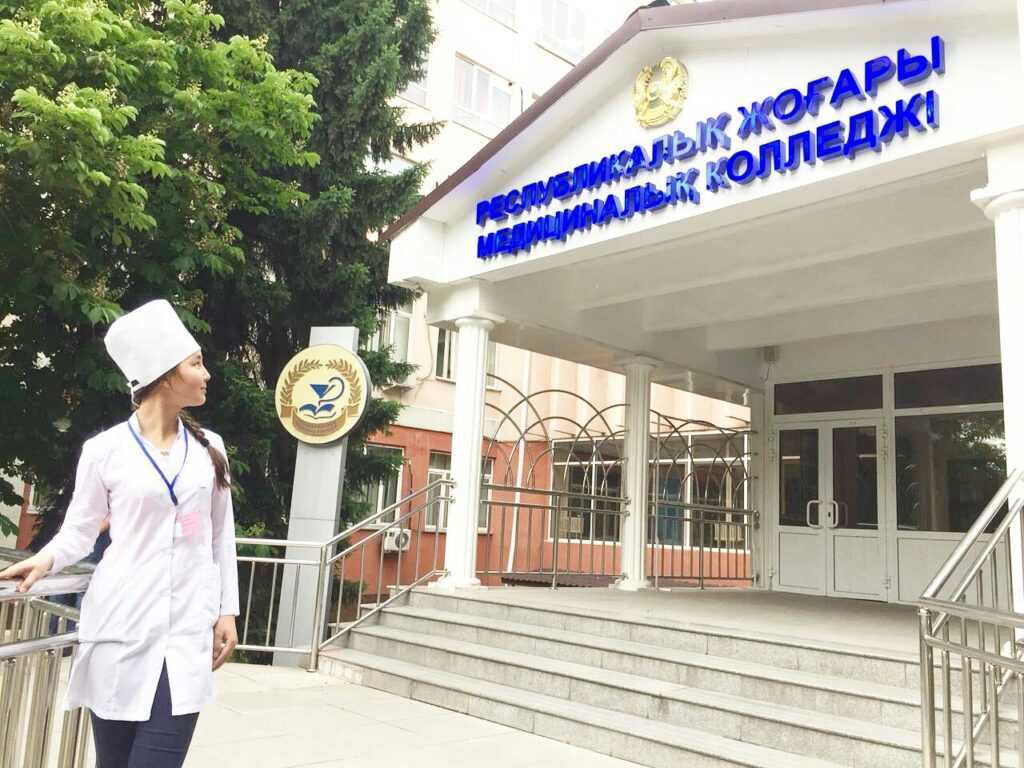
JOIN THE RANKS OF STUDENTS
Announcement

CONTACT US




